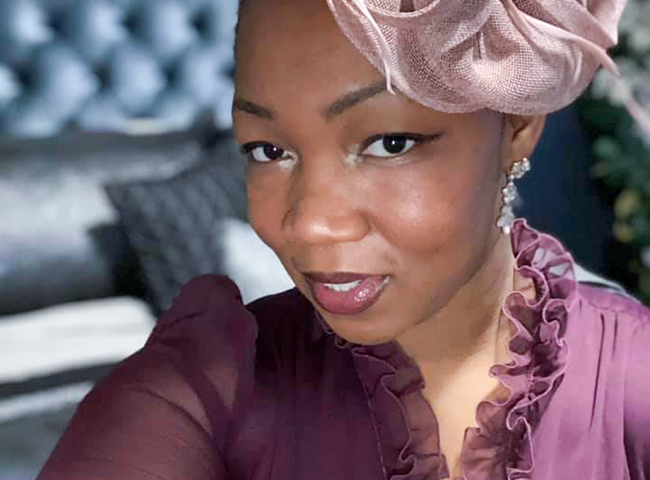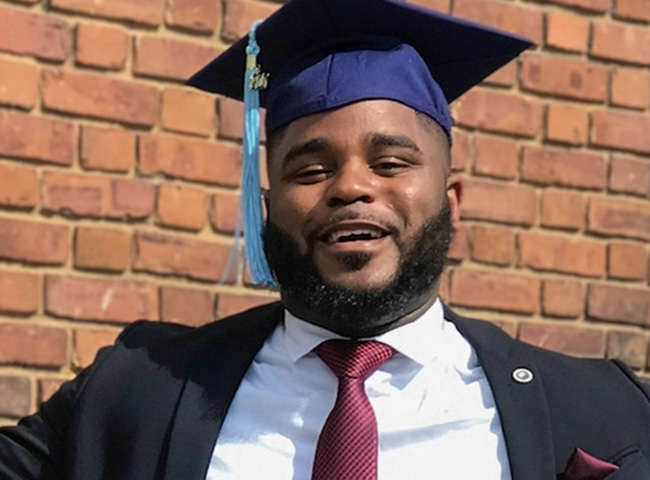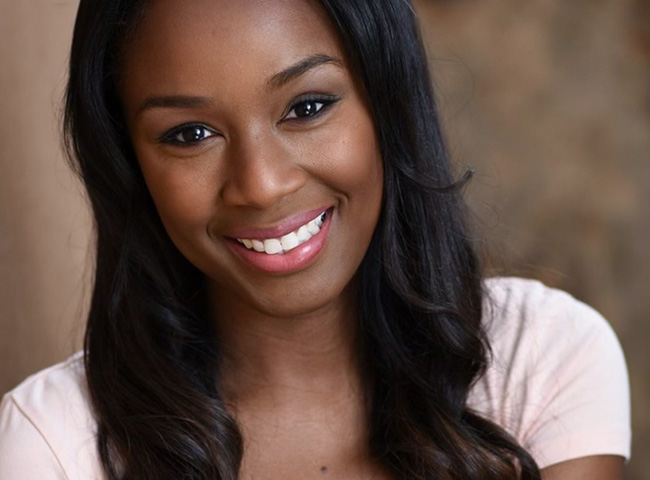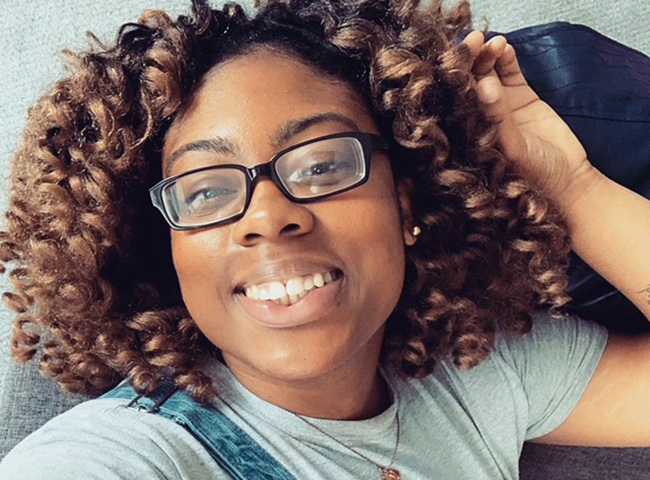What HBCUs stand for: Four grads share their stories
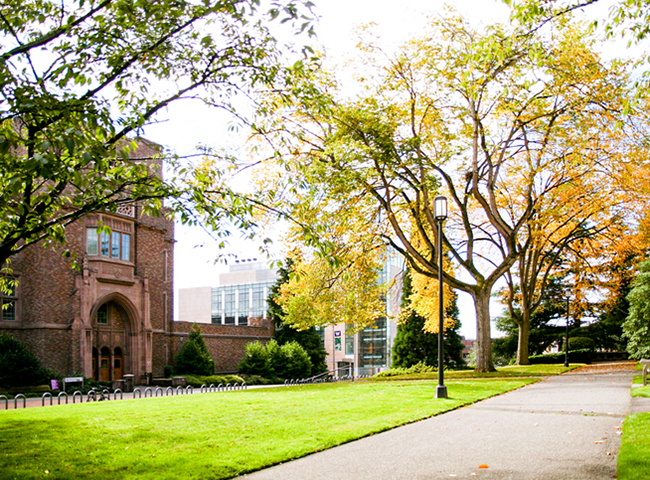
Discover the valuable lessons four HBCU graduates learned beyond the classroom in this Q&A.
Historically Black Colleges and Universities (HBCUs) have been a source of accomplishment and pride for Black and African American students for over a century.
Although HBCUs enroll 10% of all African American students, they produce nearly 20% of all African American graduates, including a high number of Black and African American doctors, lawyers, engineers, and thought leaders. Many great leaders have attended HBCUs — civil rights activists like Martin Luther King Jr. and Thurgood Marshall, writers like Toni Morrison and Alice Walker, and politicians like Kamala Harris and Stacey Abrams.
On average, tuition rates at HBCUs are also 30% lower than at comparable institutions. This makes higher education more accessible and affordable to Black and African American students and their families. And 80% of HBCU students receive federal loans, which can help meet the needs of low-income, first-generation students.
Here, four HBCU grads share how their college experiences shaped who they are today.*
Q: What made you choose your HBCU schools?
Bettina Ross: I chose Coastal Carolina because it was close to where I was living with my cousin. But after I got my associate degree, I didn’t feel fulfilled. I still wanted to learn. So I chose NC A&T because they have a journalism program with radio and TV stations. They had all the stuff that I wanted to immerse myself into.
Leola D’Aversa: Growing up and going to mainly white middle and high schools, sometimes you just feel like you don’t have anyone to relate to. I went to Spelman so that I could be around other women of color and in a city with a lot of people of color.
Nikeeya Ali: I had no intention of going to an HBCU — I didn’t even know what HBCU schools were. But a friend told me she was going to South Carolina State University, the state’s only public HBCU, so I went to tour it with my family. From that visit, I ended up receiving a full tuition scholarship, and I was accepted to the honors college.
Q: What are the top lessons you learned from your time at school?
Ross: At A&T, I grew my pride, self-worth, and self-love. I learned to love being Black in America. And being around so many educated people, I learned about my love of entrepreneurship — and learned skills to help my daughter and friends create businesses. The professors believe in the students, and they inspired and positively affirmed me.
De’Rell Bonner: I learned about African American history, about the breadth and depth of the diaspora, and that our roots didn’t start with slavery. This has resulted in me fully appreciating my cultural heritage and has allowed me to proudly stand in my Blackness. I also learned the importance of community, and what my personal values and principles are — many of which I learned through Howard’s core values.
Ali: As a Black woman, there are specific opportunities for people who look like me. I didn’t realize how many of those opportunities were out there until I went to an HBCU. At an HBCU, everything is curated for you and for people that look like you … I had things that were specifically tailored to me and my success.
Q: What role has the community in your HBCU schools played in your success?
Bonner: There’s a deep pride for those of us who attended HBCUs. There’s a saying that your network is your net worth. I’m able to lean on my network of trailblazing individuals, and it proves to be valuable every time. Now, especially at work, there is never a conversation where I don’t consistently elevate the importance of HBCUs.
Ali: The community that I built at my HBCU has never left me. I can call them up for anything. When you’re there, everyone makes a conscious effort to help one another and to bring what we have to the campus and the community. And I feel like because of that community, everything that I accomplished is a reflection on them.
Q: Were you a first-generation college graduate? If so, what was your experience like?
Ross: I’m a foster child, and I didn’t think I could go to college. But when I moved to North Carolina and had my first child, I decided to go to school and see what would happen. I didn’t have any help filling out school and financial aid applications. School was hard at first — I failed a couple classes and had to get some tutoring — but I ended up graduating with honors both at Coastal Carolina and NC A&T.
Bonner: Yes, and I encountered some of the typical challenges that first-generation college students encounter, like the financial barrier. I always prioritized my academics, so I was able to supplement funding for college through grants and scholarships, which was the only reason I was able to attend Howard. But I did take student loans, and the student debt is incredibly real. I certainly encountered many challenges, but the saving grace was my relationships with my peers. On day one, Howard told us, “Look to the left; look to the right. It’s your responsibility to ensure that this person makes it to the end.” And that support was the reason I sustained through college.
Q: What surprised you most about attending HBCU schools?
Ross: I had never seen that level of success in the Black community. I’d never seen a Black banker. Had never seen Black lawyers, doctors, or professors. A lot of media doesn’t show us that kind of success. It motivated me to see that I can achieve things.
Bonner: I learned that Black people are not a monolith, and that helped me learn empathy. It shifted my perspective about HBCUs, because there are so many differences and experiences on that campus. Embracing that enabled me to embrace people as they are.
D’Aversa: It was kind of a culture shock to see so many African American people in one place, and they were all smart. I came from a school where I was performing at the top of my class, and then I got to Spelman and there were 900 other women doing the same thing. It was great because I didn’t look at them as my competition. I looked at them as other people doing what I want to do and as a source of mutual support.
Ali: My HBCU taught me how diverse Black people and people of color are. Every day I learned something new about my culture and history. It was amazing to see the merging of cultures and people who wanted to get a higher education. Everyone came together with different perspectives, but we all had that one commonality that always brought us together.
Q: What advice do you have for those considering HBCU schools?
D’Aversa: If anyone has the opportunity to go to an HBCU, they should go for it, because it really does change your life. The experience you get while you’re there is unlike any other. Even having professors that look like you — it was something that I hadn’t had before college. I think it’s really important for people of color to see others doing well and succeeding, and HBCUs are where it starts.
*Answers have been edited for clarity.
If you’re interested in attending an HBCU, start with these resources.
- Scholarship Resource Center: Access billions of dollars in higher education funding, plus the strategies and tools to successfully navigate them.
- Common Black College Application: As the Common App allows you to fill out one application for multiple schools, the Common Black College Application allows students to apply to all 65 member HBCUs in one application.
- Helping HBCU students as they become the leaders of tomorrow: Since the mid-2000s, Wells Fargo has provided more than $34 million to historically Black colleges and universities, or HBCUs, and organizations that support them.
- Thurgood Marshall College Fund: TMCF offers both need- and merit-based scholarships for students attending TMCF member schools, including 42 HBCUs.
- United Negro College Fund: UNCF offers millions of dollars in scholarships each year to students. These students go on to attend more than 1,100 schools across the country, including 37 HBCUs.
- Our Money Matters: Free personalized financial guidance, supported through a financial grant by the Wells Fargo Foundation and is one of the programs developed by the HBCU Community Development Action Coalition (CDAC).
Celebrate your school with our custom card designs
The HBCU Legends Collection allows you to choose the logo of your school on your Wells Fargo card.

